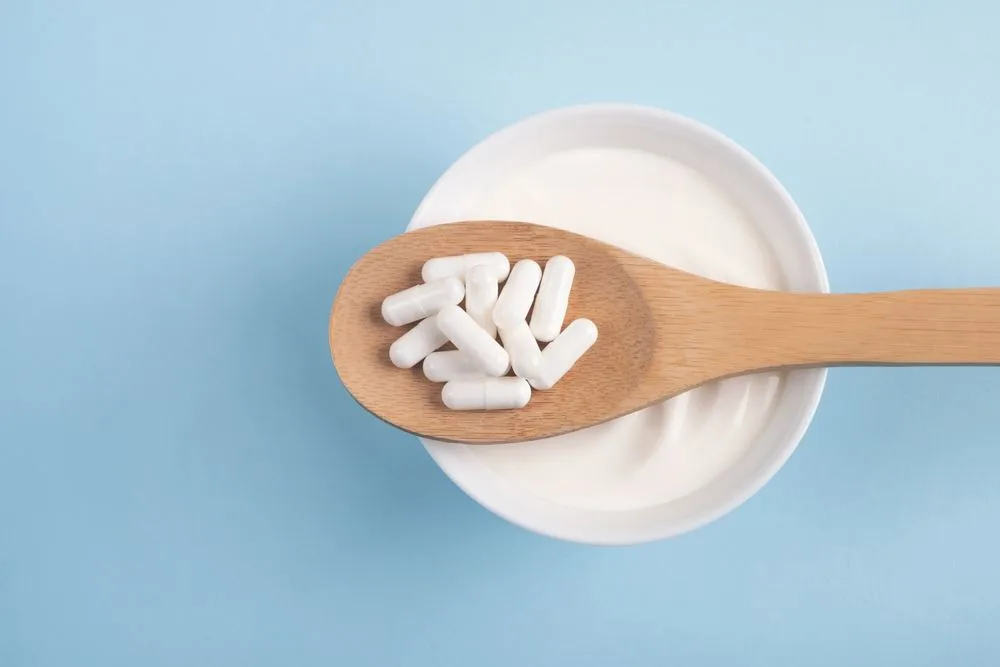We all know that the festive season, including Halloween, Thanksgiving, Christmas, and even New Year, tends to bring with it a lot of extra treats. Of course, that means a lot of sugar. So what should you do if you’ve overindulged a bit too much on all those delicious treats already?
How does too much sugar affect the body?
The first thing? Don’t stress! There is a way forward, and you can definitely re-balance your body. Any damage done isn’t indefinite, as long as you move to support the gut in healing. So, how can you help your body to heal from sugar overload? Well, it might come as a surprise, but a probiotic might be exactly what you need in order to re-balance your body.
Bad bacteria and yeast found in the gut thrive on both processed foods and sugar. Of course, these are two things that, though we may try our best to avoid, we often fall not the trap of consuming too much of. This is especially prevalent over the festive season, but can also be a stumbling block for any New Year’s resolutions. When we eat a lot of these types of foods, especially sugar, these bacteria multiply. This fast multiplication means that they are able to outdo the healthy bacteria. Thus, the bad bacteria take over the gut microbiome and cause havoc. As many of us know all too well, the gut microbiome is a vital and very delicate balancing act.
Too much of the sweet stuff is also linked to inflammation. This inflammation, especially when constant, has been proven to be a contributing factor to many diseases.
This inflammation comes as a direct result of the changes to the gut microbiome bacteria. Both the diversity and efficacy of the bacteria are affected by high levels of sugar. In fact, a high “intake of dietary sugar has been linked to an increased abundance of Proteobacteria” which are bad bacteria. When we consume normal levels of sugar, it is fully digested in the full intestine, meaning this issue doesn’t arise. However, when there’s too much sugar to deal with, it isn’t completely absorbed and moves to the large intestine where bad bacteria multiply.
First, reduce your sugar intake where possible
Before you opt for any more complex steps, the most important thing to do is to try to reduce your sugar intake. That doesn’t mean that you have to totally avoid it, especially when it’s everywhere during the festivities. Sugar also tends to hide in the most unexpected foods, which can lead to us unwittingly consuming more than we know. Your body can definitely deal with some sugar, but it’s always best to limit it if and where you can. Items you might not suspect such as oatmeal, cereal, yogurt, or even bread can tend to be packed full of sugar.
So, how can you consume less if it’s everywhere?
The simplest and best way to make sure that you aren’t overdoing it on sugar is to look at the labels. The nutritional labels found on foods can really help you along when it comes to deciding whether a food is a good choice or not. You’ll be able to see the amount of added sugars. If you can’t see the data properly, the other option is to look at the ingredients list. The higher something is on the ingredient list, the more of it there is present in the product. If, for example, maltose, cane sugar, corn syrup, or rice syrup are right up at the top, you might want to steer clear.
Another easy way to cut down on sugar is to avoid those sugary sodas which are full of sugar and empty calories. If you do have a sweet tooth, opt for fruit and even fruit juice (if there’s no added sugar) to scratch that itch. Whilst fruit does contain sugar, it is also full of fiber and vitamins that will assist in improving overall gut health. High-fiber foods are also a great option as they are typically more filling.
This will help to curb your appetite and satisfy that craving for a snack without the sugary treats.
Try probiotics to reduce the effects of too much sugar
If you have been snacking too much on sugary snacks, don’t fret. Of course, everything is okay in moderation, and the most important thing you can do is to prioritize getting your eating back on track for the new year. Taking a GI-focused probiotic might well be the answer to an overly sugary and indulgent festive season. Probiotics can really aid in supporting your gut health. Re-balancing the gut microbiome is essential for immune regulation and general health.
Ideally, when you look for a probiotic, you want one that will support the gut holistically. Strains such as B. lactis Bi-07, B420, HN019, and L. acidophilus NCFM are all shown to support both gut health and general body function. They are all also shown to assist the digestive system, reduce bloating, and may even be a benefit weight loss. The probiotics will essentially support the good bacteria in the stomach. This will stop the bad bacteria from proliferating and ultimately annihilate all the essential bacteria for a healthy gut microbiome.



![women [longevity live]](https://longevitylive.com/wp-content/uploads/2020/01/photo-of-women-walking-down-the-street-1116984-100x100.jpg)










